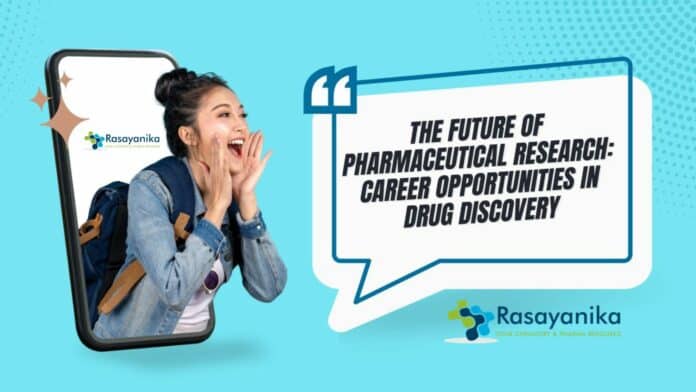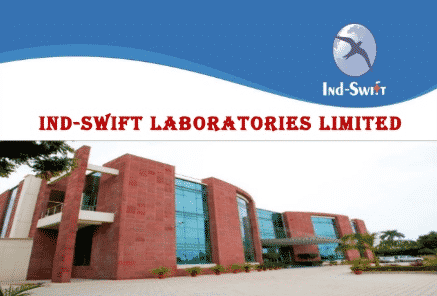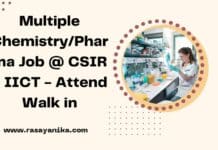In the vast landscape of the pharmaceutical industry, one facet shines brightly as a beacon of hope, innovation, and scientific endeavor: drug discovery. The future of pharmaceutical research is intrinsically tied to the relentless pursuit of novel therapeutic agents that have the potential to alleviate human suffering and enhance the quality of life. As science and technology continue their inexorable march forward, drug discovery stands at the forefront of this evolution, offering career opportunities that are as dynamic and promising as they are intellectually stimulating.
The journey into the realm of drug discovery is a voyage of both scientific inquiry and practical application. It is the process through which researchers identify, design, and develop new drugs, ranging from traditional small molecules to cutting-edge biologics and gene therapies. It is a multidisciplinary endeavor that spans genetics, chemistry, pharmacology, informatics, and clinical research. Moreover, it is a journey with profound implications for society, as the fruits of drug discovery bring new hope to patients and contribute to the advancement of medical science.
As we embark on this exploration of the future of pharmaceutical research, we will traverse the intricate landscape of drug discovery, shedding light on emerging trends, the diverse career opportunities
it offers, and the profound impact it can have on global healthcare. From the role of artificial intelligence in revolutionizing drug design to the ethical considerations that underpin this scientific frontier, we will navigate the opportunities and challenges that define this exhilarating field.In the chapters that follow, we will delve into the intricate details of drug discovery, uncovering the roles of professionals who shape its course, from medicinal chemists crafting molecules with precision to bioinformaticians wielding the power of computational analysis. We will explore the transformative potential of biologics and gene therapies, where science blurs the lines between treatment and cure. We will examine the impact of data science and high-throughput screening in accelerating the drug discovery process, and we will meet the clinical research scientists who bridge the gap between laboratory innovation and real-world patient care.
As with any frontier of scientific inquiry, drug discovery presents its fair share of challenges, from the financial burdens of development to the ethical considerations surrounding experimentation and the intricate web of regulatory hurdles. Yet, it is precisely these challenges that drive innovation and inspire a new generation of scientists and professionals to dedicate their careers to the pursuit of groundbreaking therapeutics.
The future of pharmaceutical research is not merely a destination; it is a dynamic journey into the unknown, where each discovery leads to new questions and new possibilities. It is a field that offers the chance to make a tangible impact on the lives of individuals and the progress of humanity. So, as we embark on this exploration of drug discovery and its career opportunities, we invite you to join us in the exciting quest to shape the future of medicine, one molecule, one therapy, and one breakthrough at a time.
Understanding Drug Discovery:
Drug discovery is the intricate process of identifying, designing, and developing new therapeutic agents, ranging from small molecules to biologics, that can effectively treat diseases and conditions. It is the crucial first step in bringing a new medication to market and involves various stages, from target identification and validation to clinical trials.
Emerging Trends in Drug Discovery:
Artificial Intelligence (AI) and Machine Learning: AI and machine learning are revolutionizing drug discovery. These technologies can analyze vast datasets, predict potential drug candidates, and optimize molecular structures for enhanced efficacy and safety.
High-Throughput Screening (HTS): Advances in automation and robotics have made high-throughput screening more efficient, allowing researchers to test thousands of compounds rapidly.
Precision Medicine: Drug discovery is increasingly moving towards precision medicine, where treatments are tailored to individual patients based on genetic and molecular profiles.
Biologics and Gene Therapies: Biologics, including monoclonal antibodies and gene therapies, are gaining prominence in drug discovery due to their potential for targeted therapies.
Career Opportunities in Drug Discovery:
Medicinal Chemist: Medicinal chemists play a pivotal role in designing and synthesizing new drug candidates. They optimize molecules for efficacy, safety, and bioavailability.
Bioinformatician: Bioinformaticians use computational tools to analyze biological data, aiding in target identification, virtual screening, and understanding disease mechanisms.
Pharmacologist: Pharmacologists study the effects of drugs on biological systems. They help assess the safety and efficacy of drug candidates in preclinical and clinical stages.
Biotechnologist: Biotechnologists work on the development of biologics and gene therapies. They are involved in cell culture, gene editing, and bioprocess optimization.
Data Scientist: Data scientists apply AI and machine learning to drug discovery data. They develop algorithms to identify potential drug candidates and predict their behavior.
Clinical Research Scientist: Clinical research scientists oversee clinical trials to evaluate the safety and efficacy of new drugs. They play a crucial role in the drug development process.
Pharmaceutical Project Manager: Project managers coordinate interdisciplinary teams to ensure drug discovery projects meet timelines, budgets, and regulatory requirements.
Challenges in Drug Discovery:
While the future of pharmaceutical research is promising, it also presents challenges:
Cost and Time: Drug discovery is a resource-intensive process that can take years and cost billions of dollars.
Regulatory Hurdles: Meeting regulatory requirements for safety and efficacy is a complex and demanding aspect of drug development.
Ethical Considerations: Ethical issues, such as the use of animal testing and informed consent in clinical trials, require careful navigation.
Competition: The pharmaceutical industry is highly competitive, with numerous companies vying to bring new drugs to market.
The Impact of COVID-19:
The COVID-19 pandemic underscored the importance of drug discovery and vaccine development. Researchers worldwide collaborated to develop vaccines in record time, showcasing the resilience and adaptability of the pharmaceutical research community.
Conclusion:
The future of pharmaceutical research and career opportunities in drug discovery hold immense promise. Advancements in technology, data analysis, and precision medicine are revolutionizing the field. Aspiring professionals in this domain have the opportunity to make significant contributions to healthcare and scientific progress. Despite the challenges, the allure of discovering life-changing medications that improve and save lives continues to drive innovation in pharmaceutical research, making it a compelling and rewarding career path.
Career Opportunities in Drug Discovery Looking for latest chemistry and Pharma job openings, follow Rasayanika Facebook and Telegram and subscribe to our youtube channel for the latest updates on chemistry and Pharma job



















































I want a job for pharmacology department